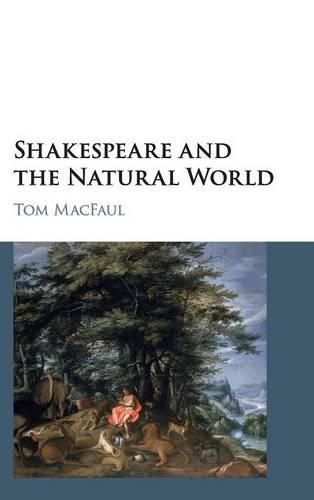Readings Newsletter
Become a Readings Member to make your shopping experience even easier.
Sign in or sign up for free!
You’re not far away from qualifying for FREE standard shipping within Australia
You’ve qualified for FREE standard shipping within Australia
The cart is loading…






Exploring the rich range of meanings that Shakespeare finds in the natural world, this book fuses ecocritical approaches to Renaissance literature with recent thinking about the significance of religion in Shakespeare’s plays. MacFaul offers a clear introduction to some of the key problems in Renaissance natural philosophy and their relationship to Reformation theology, with individual chapters focusing on the role of animals in Shakespeare’s universe, the representation of rural life, and the way in which humans’ consumption of natural materials transforms their destinies. These discussions enable powerful new readings of Shakespeare’s plays, including A Midsummer Night’s Dream, As You Like It, King Lear, Macbeth, The Tempest, The Winter’s Tale, and the history plays. Proposing that Shakespeare’s representation of the relationship between man and nature anticipated that of the Romantics, this volume will interest scholars of Shakespeare studies, Renaissance drama and literature, and ecocritical studies of Shakespeare.
$9.00 standard shipping within Australia
FREE standard shipping within Australia for orders over $100.00
Express & International shipping calculated at checkout
Exploring the rich range of meanings that Shakespeare finds in the natural world, this book fuses ecocritical approaches to Renaissance literature with recent thinking about the significance of religion in Shakespeare’s plays. MacFaul offers a clear introduction to some of the key problems in Renaissance natural philosophy and their relationship to Reformation theology, with individual chapters focusing on the role of animals in Shakespeare’s universe, the representation of rural life, and the way in which humans’ consumption of natural materials transforms their destinies. These discussions enable powerful new readings of Shakespeare’s plays, including A Midsummer Night’s Dream, As You Like It, King Lear, Macbeth, The Tempest, The Winter’s Tale, and the history plays. Proposing that Shakespeare’s representation of the relationship between man and nature anticipated that of the Romantics, this volume will interest scholars of Shakespeare studies, Renaissance drama and literature, and ecocritical studies of Shakespeare.